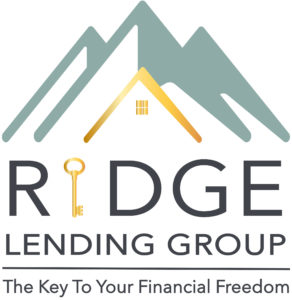Investing in real estate offers the potential for lucrative returns, with rental properties serving as a cornerstone of wealth-building strategies for many investors. However, achieving sustainable cash flow, maximizing appreciation and optimizing tax advantages with investment properties requires careful planning, diligent management, and strategic execution. In this edition of our newsletter, we explore effective strategies to ensure that your investment property generates consistent cash flow and remains a profitable asset in your portfolio.
1. Conduct Thorough Market Research: Before purchasing an investment property, conduct comprehensive market research to identify areas with strong rental demand, and/or strong annual appreciation, favorable rental rates, and low vacancy rates. Analyze factors such as job growth, population trends, local amenities, and school districts to assess the long-term viability of the rental market.
2. Choose the Right Property: Selecting the right investment property is paramount to maximizing cash flow. Look for properties with a favorable price-to-rent ratio, potential for value appreciation, and low maintenance costs. Consider factors such as location, property condition (age and any renovation), rental potential for each long, mid and short term, and amenities to ensure that your investment aligns with your financial goals.
3. Calculate Expenses and Cash Flow Projections: Before acquiring an investment property, meticulously calculate all expenses associated with property ownership, including mortgage payments, property taxes, insurance, maintenance/vacancy costs, and property management fees. Remember to DO THE MATH! Use cash flow projection tools to estimate potential rental income and expenses, allowing you to assess the property’s profitability and determine its cash flow potential. And don’t forget annual tax write-offs on your Schedule E. Even if those don’t play a key role yet, I promise you at some point they will and understanding how to include that in your projections is necessary.
4. Implement Effective Property Management: Efficient property management is crucial for maximizing cash flow and maintaining tenant satisfaction. Whether you choose to self-manage or hire a professional property management company, ensure that routine maintenance tasks, tenant communication, rent collection, and property inspections are conducted promptly and efficiently to minimize vacancy and expenses. Ridge Lending Group has a starter checklist for vetting a new property manager, please email us at info@ridgelendinggroup.com for a copy!
5. Optimize Rental Rates: Continuously monitor local rental market trends and adjust rental rates accordingly to remain competitive and maximize rental income. Conduct regular rent reviews, benchmarking against similar properties in the area, and consider offering incentives such as lease renewal discounts or upgrades to attract and retain quality tenants. Don’t be afraid to push back on property managers that resist raising rents. Not to say that is the right or wrong move, but I want to feel confident about the ‘Why’ the Property Manager provides if we aren’t appreciating the rents annually.
6. Minimize Vacancy and Turnover: Vacancy and turnover can significantly impact cash flow and profitability. Implement strategies to minimize vacancy periods, such as proactive tenant retention efforts, timely maintenance and repairs, and offering lease incentives for longer lease terms. Additionally, conduct thorough tenant screening and background checks to secure reliable, long-term tenants. And know the tenant/landlord laws in the city the property is located.
7. Explore Alternative Revenue Streams: Consider diversifying your investment property’s revenue streams to enhance cash flow and mitigate risk. Explore opportunities such as short-term rentals (e.g., Airbnb), additional amenities or services (e.g., parking, storage, laundry facilities), or value-add opportunities (e.g., renovations, upgrades) to increase rental income and property value.
8. Monitor and Adjust Financial Performance: Regularly monitor your investment property’s financial performance, including income, expenses, occupancy rates, and cash flow. Analyze key performance metrics and adjust your strategies as needed to optimize profitability and achieve your financial objectives. This includes potential refinance or even 1031 exchanges.
Empowering Your Investment Success: At Ridge Lending Group we’re committed to empowering investors with the knowledge, resources, and support they need to succeed in the dynamic world of real estate investing. Whether you’re a seasoned investor or just starting your journey, our team is here to provide personalized guidance, expert insights, and tailored solutions to help you achieve your investment goals.
If you’re ready to maximize cash flow and unlock the full potential of your investment property, don’t hesitate to reach out to us. Together, let’s navigate the path to financial success and build a brighter future through real estate investing.
Call 855-747-4343 (855-74RIDGE), email info@ridgelendinggroup.com or apply here to get started today!


